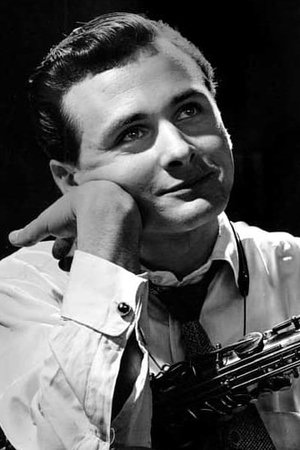
Stan Getz
Stanley Getz (February 2, 1927 – June 6, 1991) was an American jazz saxophonist. Playing primarily the tenor saxophone, Getz was known as "The Sound" because of his warm, lyrical tone, with his prime influence being the wispy, mellow timbre of his idol, Lester Young. Coming to prominence in the late 1940s with Woody Herman's big band, Getz is described by critic Scott Yanow as "one of the all-time great tenor saxophonists". Getz performed in bebop and cool jazz groups. Influenced by João Gilberto and Antônio Carlos Jobim, he also helped popularize bossa nova in the United States with the hit 1964 single "The Girl from Ipanema". Stan Getz was born on February 2, 1927, at St. Vincent's Hospital in Philadelphia, Pennsylvania, United States. Getz's father Alexander ("Al") was born in Mile End, London, in 1904, while his mother Goldie (née Yampolsky) was born in Philadelphia in 1907. His paternal grandparents Harris and Beckie Gayetski were originally from the Kyiv area of Ukraine but had migrated to escape the anti-Jewish pogroms to Whitechapel, in the East End of London. While in England they owned the Harris Tailor Shop at 52 Oxford Street for more than 13 years. In 1913, Harris and Beckie emigrated to the United States with their three sons Al, Phil, and Ben, following their son Louis Gayetski who had emigrated to the US the year before. Getz's original family name, "Gayetski", was changed to Getz upon arrival in America. The Getz family first settled in Philadelphia, but during the Great Depression the family moved to New York City, seeking better employment opportunities. Getz worked hard in school, receiving straight A's, and finished sixth grade close to the top of his class. Getz's major interest was in musical instruments and he played a number of them before his father bought him his first saxophone when he was 13. Even though his father also got him a clarinet, Getz instantly fell in love with the saxophone and began practicing eight hours a day. Getz attended James Monroe High School in the Bronx. In 1941, he was accepted into the All-City High School Orchestra of New York City. This gave him a chance to receive private, free tutoring from the New York Philharmonic's Simon Kovar, a bassoon player. He also continued playing the saxophone. He eventually dropped out of school in order to pursue his musical career but was later sent back to the classroom by the school system's truancy officers. In 1943, at the age of 16, he joined Jack Teagarden's band and, because of his youth, he became Teagarden's ward. Getz also played along with Nat King Cole and Lionel Hampton. A period based in Los Angeles with Stan Kenton was brief. Following a comment from Kenton that his main influence, Lester Young, was too simple, he quit. After performing with Jimmy Dorsey, and Benny Goodman, Getz was a soloist with Woody Herman from 1947 to 1949 in "The Second Herd", and he first gained wide attention as one of the band's saxophonists, who were known collectively as "The Four Brothers"; the others being Serge Chaloff, Zoot Sims and Herbie Steward. With Herman, he had a hit with "Early Autumn" in 1948. ... Source: Article "Stan Getz" from Wikipedia in English, licensed under CC-BY-SA 3.0.